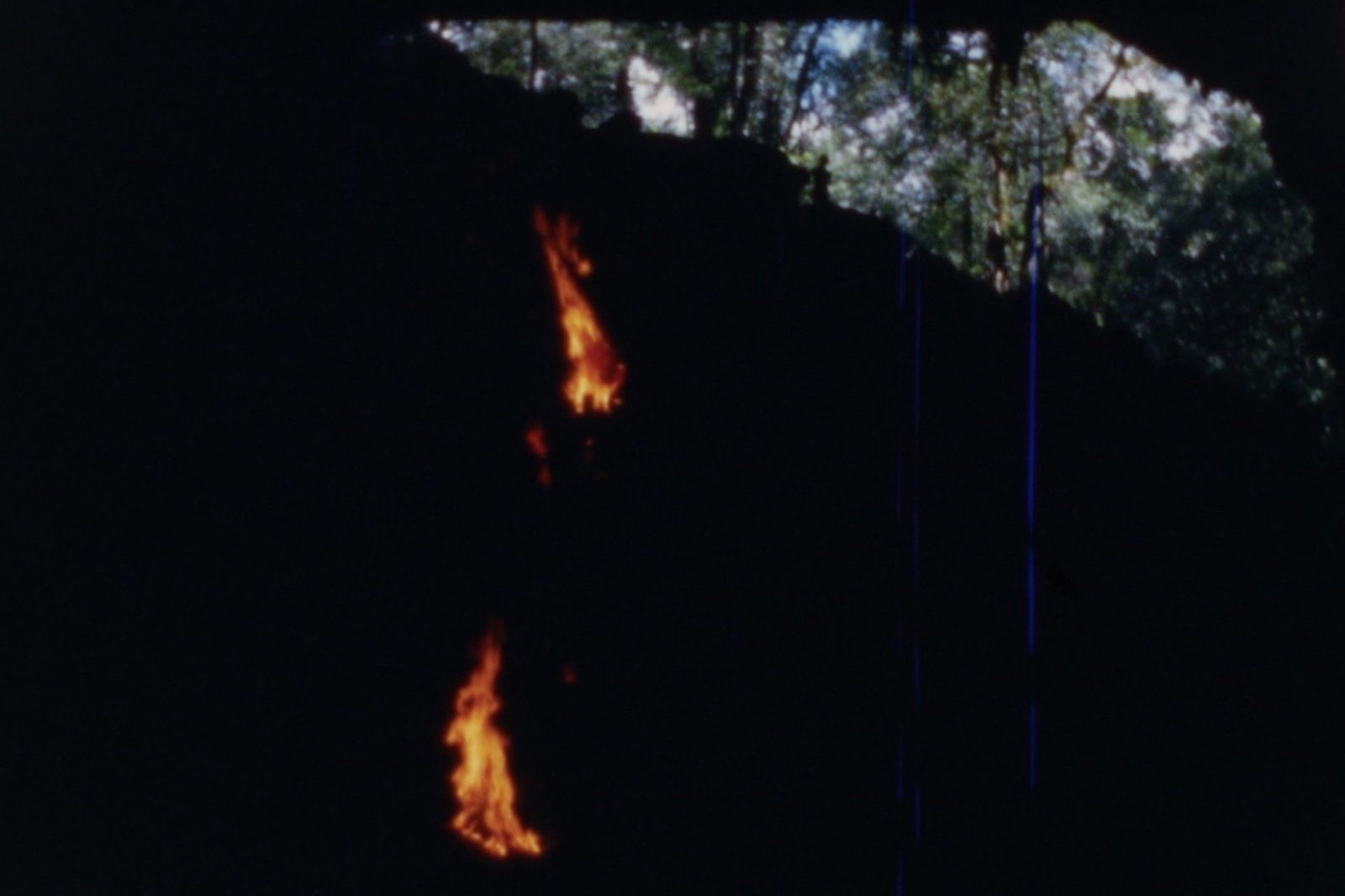Expedition Content – Ernst Karel & Veronika Kusumaryati
Opening: February 24th
Exhibition open: 24.02-18.03.2023
Times: Fri/Sat 14-18h and by appointment
Screening times: 6pm & 8pm
Please note the piece is 78 minutes long, and is intended to be experienced from beginning to end.
WET are proud to present Expedition Content by Ernst Karel and Veronika Kusumaryati, an augmented sound piece which sifts through material from the infamous Harvard Peabody Expedition to Netherlands New Guinea, a trip financed by the Dutch government and conducted by a group of American researchers and filmmakers in 1961. The piece simultaneously uncovers, reveals and abstracts, raising questions about anthropological filmmaking, the broader objectification of indigenous people, and the role of Dutch and American colonialism in the region.
In their nearly imageless film, Karel and Kusumaryati document the strange encounters between the expedition and the indigenous Hubula (also known as Dani) people. The work explores and upends the power dynamics between anthropologist and subject, between image and sound, and turns the whole ethnographic project on its head. Throughout the piece we hear recordings of the Hubula alongside the voices of the Americans, lifting the lid on their interactions; there are sonic notations from the recordist, and from later archivists of the material; the microphones register songs, daily work, animals and ambiences. Sporadic fragments of celluloid offer an occasional anchor in a visual world which eludes our grasp.
Expedition Content draws on audio recordings made by recent college graduate and Standard Oil heir Michael Rockefeller to study the Hubula. These recordings also provided sonic material for Robert Gardner’s Dead Birds, a landmark anthropological film which portrayed the Hubula as a ‘stone age tribe’ who offered a window onto humanity’s past. The film and expedition’s notoriety were enhanced by the disappearance of Rockefeller three months after the expedition took place. Having tried to swim to shore from an overturned canoe, he was thought to have drowned, but his presumed death has been subject to many popular accounts, embedded in anthropological myths about fieldwork.
The Harvard Peabody Expedition is exemplary not only because it was influential in shaping the direction of American anthropology, but also because, to a large extent, it shaped the American understanding of Papuans and American foreign policy toward the region until today—through their influence on American academics and American publics. The expedition became one of the most well-documented studies of a single area in the world and its influence reached a wider audience, outside the confines of academia. Expedition Content considers this legacy and examines the moment in which it emerged, opening our ears to the construction of anthropological myths, ethnographic film and the so-called ‘scientific’ description of cultures outside one’s own.
Ernst Karel works with sound, including electroacoustic music, experimental nonfiction sound works, image-sound collaboration, and post-production sound for nonfiction film. Lately, he works around the practice of actuality/location recording and composing with those recordings, with recent projects also taking up archival audio. At the Sensory Ethnography Lab at Harvard University, he collaborated on sound for a number of films and developed and taught a practice-based course in ‘sonic ethnography.’
Veronika Kusumaryati is a political and media anthropologist working in West Papua, a self-identifying term referring to Papua and West Papua provinces of Indonesia. Her scholarship engages with the theories and historiography of colonialism, decolonization, and postcoloniality. She holds a doctoral degree from the department of anthropology at Harvard with a secondary field in Film and Visual Studies. She is an affiliate of the Sensory Ethnography Lab and currently a postdoctoral fellow at Georgetown University.
Access: WET is located on the 3rd floor and unfortunately not wheelchair accessible at this time. We do have a working elevator in the building between ground and 2nd floor. Please let us know if you have any other access requirements.
WET’s 2023 programme is supported by Mondriaan Fonds and Gemeente Rotterdam.
